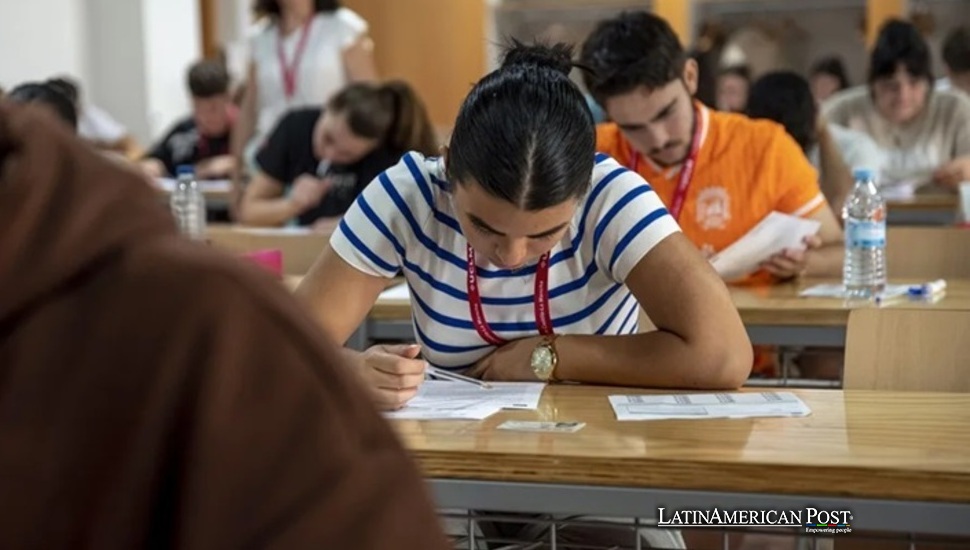Mexico’s AI Scholarships Ignite Latin America’s Tech Transformation

As technology reshapes the global economy, Mexico is forging a path for Latin America’s future. The distribution of 30,000 artificial intelligence and cybersecurity scholarships underscores a regional drive to bridge the digital gap, boost opportunities, and empower new generations.
A Step Forward for Latin America’s Educational Outlook
Mexico’s Secretariat of Public Education made a choice – it gave 30,000 scholarships for Google Career Certificates in artificial intelligence and cybersecurity. These scholarships target students and instructors from the Colegio de Bachilleres (COLBACH) and the Dirección General de Educación Tecnológica Agropecuaria y Ciencias del Mar (DGETAyCM). Beyond this initial phase, there are plans for a second pilot program later in 2025 to expand the initiative to other high school subsystems nationwide.
Although the program focuses on Mexico, its effects spread across Latin America. Many young people in the area do not have the tools, training, or support to work well in the digital economy during ongoing technological changes. Mexico lowers obstacles to advanced tech education. This work shows how governments join top global firms to bring fast progress, mainly in countries with uneven digital systems.
Technology changes have grown fast in recent years. This growth makes AI, cybersecurity, and data analysis more important than software development. Employers now look for candidates with proper digital skills. The young people in the area must learn to fill this need. With the scholarship plan, students and teachers get planned access to special training that might stay out of reach otherwise. When participants finish the program, they join the workforce immediately, making it stronger and more varied, and they help build a tech-capable group that can support Latin America’s economic growth.
The economic problems that have troubled the area – with high prices, little investment, and difficulty in finding jobs – show the need for these efforts. Using AI and cybersecurity benefits, Mexico and nearby countries can build new job paths, support local industries, and lessen the need for outside digital skills. This plan deals with global tech changes and gives power to communities that have left past school ways behind.
AI, Cybersecurity, and a Changing Job Market
The scholarships offered by Google in AI and cybersecurity represent an apparent response to the labor demands anticipated over the next few years. Industry estimates project tens of millions of new tech-related jobs worldwide by 2025, many requiring skills still absent from most high school or university curricula. In Latin America, where the digital skills gap remains a significant obstacle, earning industry-recognized certifications in months—rather than years—could prove transformative.
These Google Career Certificates let people begin without any background. Teachers and employees study the online modules comfortably by spending about 10 hours each week to finish them in six months. Learners study basic, work-related ideas such as control of AI algorithms, arrangement of data flow, or setup of standards that keep network systems safe from outside risks. At the course’s end, students earn a proof of skill that holds high value in the tech field, which lifts their job chances.
Cybersecurity has become an important area because digital dangers are growing. Cyberattacks disturb companies, harm personal data, and slow investments in new markets. Experts in cybersecurity lower risks and build trust with companies while letting entrepreneurs work safely. At the same time, AI takes over tasks, such as simplifying manufacturing and improving customer service by handling language tasks. Mexico’s decision to focus on these two fields shows a clear understanding that the future needs skilled workers who solve challenging problems while driving new ideas.
This method also helps teachers in Mexico, who learn useful, modern facts in subjects rarely taught in regular training for educators. When they finish the courses, they take real experience with advanced tech tools back to their classrooms so future groups of learners study new ideas from those who know them well. Ultimately, this way of teaching and learning builds a base for long-term growth, making people more familiar with tech answers at all school levels in Latin America.
Collaboration, Inclusion, and the Future of Tech Learning
This story’s core is that working together makes success more likely. Mexico’s federal government, local education offices, Google, and other groups have combined efforts to build a technology-focused plan that other Latin American countries can copy. They made a plan that suits job needs and community wants. This plan sets a common task for public services with private firms—it goes beyond political limits yet skips quick targets.
These ties also shrink the digital gap that hits women, people in the countryside, and excluded groups in Latin America. With high school award programs, Mexico ensures that the changes in digital work move past only top universities or large cities. Students who once did not get digital tools or family help now gather needed qualifications that let them find steady, well-paid jobs. In the long run, their wins push others in their towns to see technology as a practical chance for social and financial growth.
At the same time, Google.org spent $2 million in regions such as Jalisco, Puebla, and Oaxaca. That cash builds a plan for charity work to come. The program uses simple AI with local groups to reach more people who might not have begun advanced certificates yet. The blend of charity funds with government startup plans makes a repeatable method that may grow in Latin America while it joins school plans with broader growth goals.
Teachers get simple AI lessons while students learn online security facts. This shows that a complete tech plan works. In a place short on supplies, these courses use a direct approach that may yield clear, fast results. Whether a person stops cyber theft in local stores or applies AI to solve problems in farming, medicine, or travel, the effects show in many areas.
Also Read: Uncovering Tenochtitlan: Mexican Heritage Beneath a Modern Landscape
Mexico offers broad awards for AI and online safety. This act shows a shift in the region’s usual view. As tech changes work methods and day-to-day life, projects like this hasten when Latin America accepts new ideas with modern tools. More than a local pilot, Mexico’s bold initiative champions a forward-thinking vision: an inclusive, collaborative blueprint that positions Latin America to excel in a tech-driven global marketplace.





